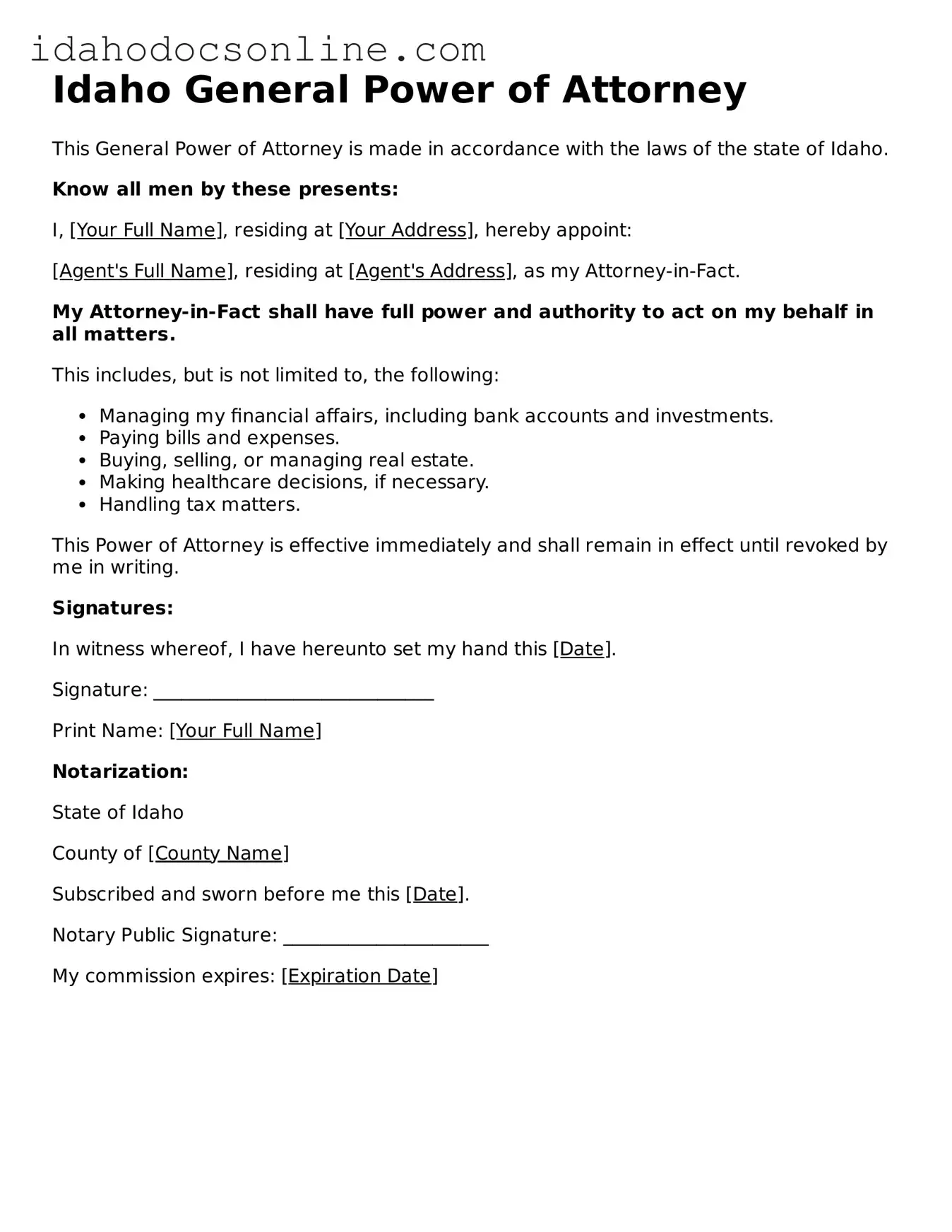Free General Power of Attorney Form for Idaho
The Idaho General Power of Attorney form is a legal document that allows one person to grant another the authority to make decisions on their behalf. This form is essential for managing financial and legal matters when an individual is unable to do so themselves. To get started with your General Power of Attorney, fill out the form by clicking the button below.
Fill Out Your Document

Free General Power of Attorney Form for Idaho
Fill Out Your Document
Need speed? Complete the form now
Complete General Power of Attorney online — edit, save, download with ease.
Fill Out Your Document
or
Free PDF
